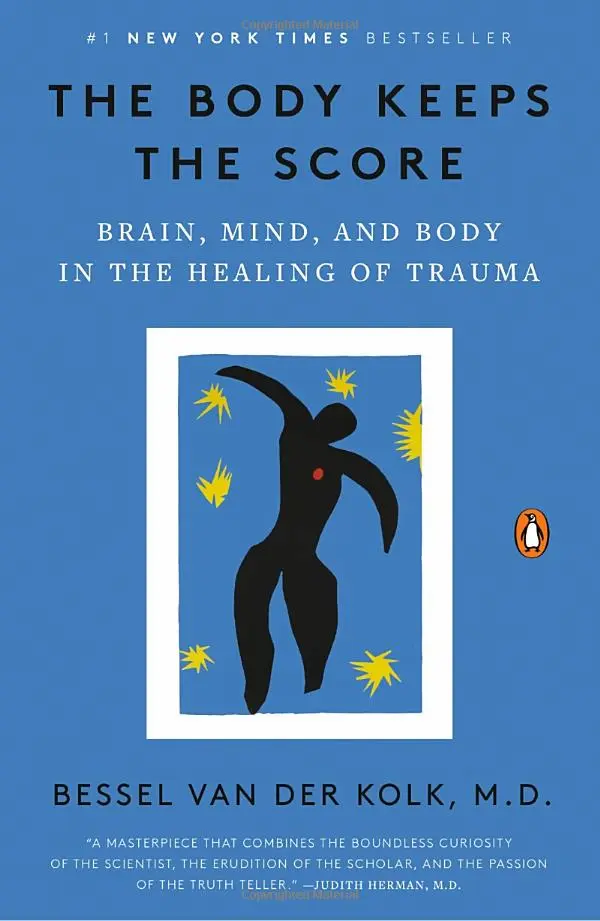When it comes to the field of trauma therapy, “The Body Keeps the Score” is a groundbreaking book that has revolutionized our understanding of the topic. It is essential for mental health professionals and individuals alike to have a solid grasp of the concepts and themes explored in this book. By delving into the effects of trauma on the body, we can gain a deeper understanding of the emotional and physical challenges people face when dealing with trauma. This article will provide a comprehensive summary of “The Body Keeps the Score,” including key concepts and practical applications. Whether you are a mental health professional or seeking to heal from trauma, this article will provide invaluable insights into the groundbreaking insights in this book.
Disclaimer: This article provides a review of “The Body Keeps the Score” and is not intended to be a substitute for medical or professional advice. Readers should always seek the advice of a qualified mental health professional or medical practitioner for any concerns related to their health.
Background
“The Body Keeps the Score” was written by renowned psychiatrist and trauma expert Bessel van der Kolk, who has spent decades researching the impact of trauma on the human body. His extensive trauma therapy and research background have made him one of the leading authorities in the field.
The book was written in the context of a growing understanding of the long-term effects of trauma on individuals and the need for more effective treatment approaches. Van der Kolk’s goal in writing this book was to provide a comprehensive understanding of how trauma affects the body and offer practical techniques for healing and recovery.
Summary of The Body Keeps the Score
“The Body Keeps the Score” presents a wealth of insights and teachings on trauma therapy. The book covers a range of key concepts and themes, including how trauma affects the body, the role of neuroscience in understanding trauma, and the importance of integrating different therapeutic approaches to achieve healing.
One of the author’s main arguments is that traditional talk therapies are often insufficient in addressing the physiological effects of trauma on the body and that more embodied approaches are needed. He also emphasizes the importance of recognizing the unique needs of individuals when it comes to trauma therapy and tailoring treatment to meet those needs.
Throughout the book, van der Kolk provides extensive evidence and research on how trauma affects the body, including the impact on the nervous system, brain function, and physical health. He also offers a range of practical techniques for healing from trauma, including mindfulness, yoga, and neurofeedback.
“The Body Keeps the Score” offers a range of practical applications for individuals, mental health professionals, and anyone seeking to understand trauma and its effects better. The book provides a comprehensive guide for those seeking to overcome the challenges of trauma and move toward healing and recovery.
Implications and Critiques
As with any significant work in the mental health field, “The Body Keeps the Score” has received both praise and criticism from experts and readers alike. One of the book’s key implications is its potential impact on trauma therapy and how mental health professionals approach trauma treatment. By emphasizing the importance of embodied approaches and recognizing the physiological effects of trauma on the body, the book has the potential to inspire new treatment approaches that prioritize holistic healing.
Critiques of the book have focused on a range of issues, including concerns about the book’s emphasis on somatic therapies and its downplaying of the importance of talk therapy. Some have also argued that the book overemphasizes the role of trauma in certain mental health conditions, such as borderline personality disorder.
In response to these critiques, van der Kolk and other supporters of the book have argued that it is not intended to be a one-size-fits-all approach to trauma therapy but rather a comprehensive exploration of how trauma affects the body and mind. They have also emphasized the importance of recognizing each individual’s unique needs and experiences when it comes to trauma therapy.
Exploring both sides of the debate can give you a deeper understanding of trauma therapy’s complex issues and the ongoing efforts to improve treatment approaches.
Key Takeaways
“The Body Keeps the Score” is a groundbreaking book that has had a significant impact on the field of trauma therapy. It emphasizes the importance of understanding trauma and its effects on the body and provides valuable insights into the physiological and psychological challenges faced by individuals who have experienced trauma.
The book’s emphasis on embodied approaches and integrating different therapeutic modalities has inspired new approaches to trauma treatment. It has the potential to significantly improve outcomes for those seeking to heal from trauma.
For those seeking to deepen their understanding of trauma and its effects, “The Body Keeps the Score” is an essential read. However, it is important to recognize that there is no one-size-fits-all approach to trauma therapy. Further reading and exploring different treatment modalities can help provide a more comprehensive understanding of trauma and its impact on individuals.
“The Body Keeps the Score” is an important contribution to the field of mental health, and has helped to advance the understanding of trauma and its effects. By continuing to explore these issues and developing new approaches to trauma therapy, we can help ensure that individuals who have experienced trauma can achieve healing and recovery.


Leave a Reply